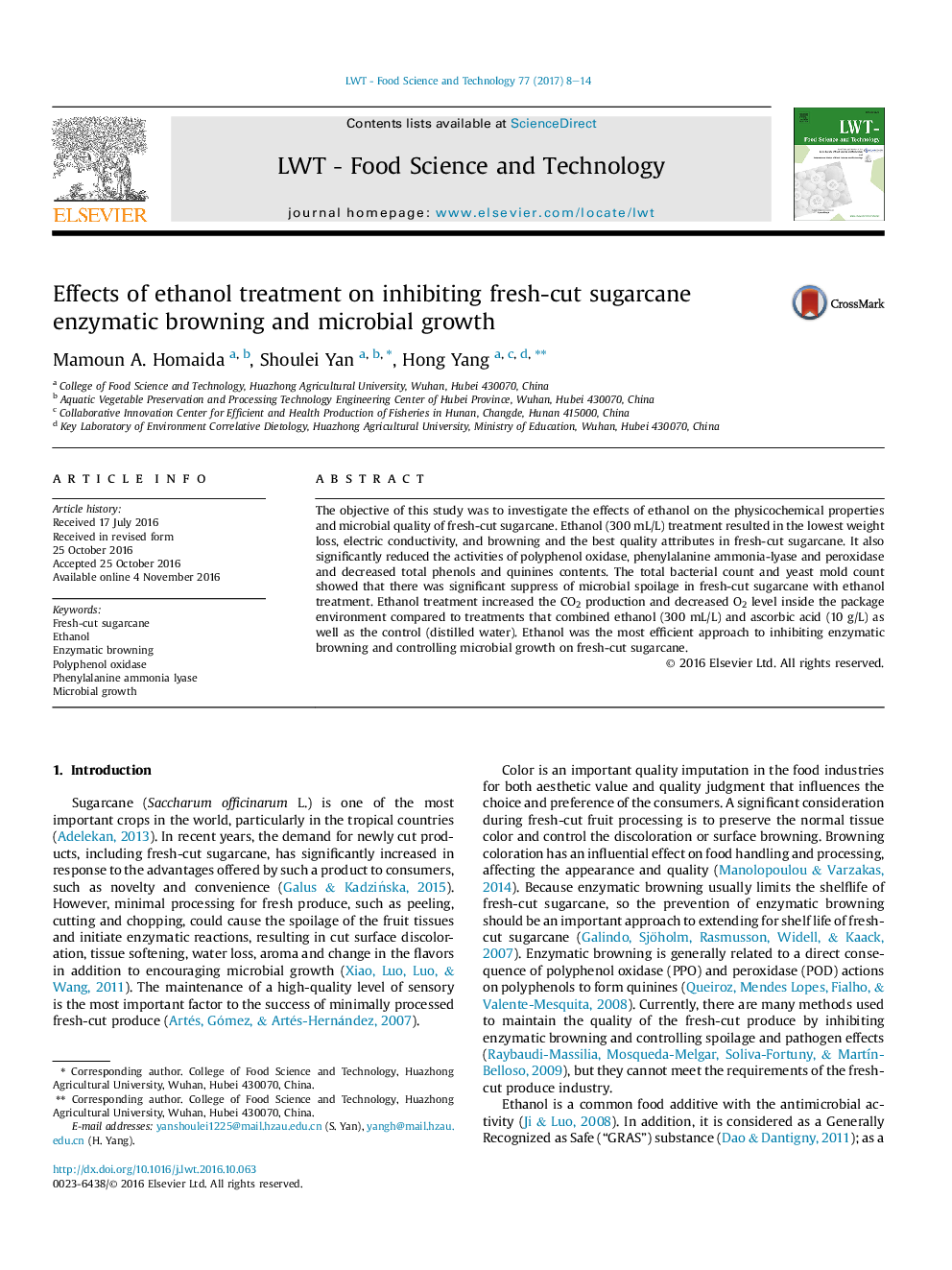| Article ID | Journal | Published Year | Pages | File Type |
|---|---|---|---|---|
| 5768830 | LWT - Food Science and Technology | 2017 | 7 Pages |
â¢Ethanol treatment inhibited fresh-cut sugarcane enzymatic browning.â¢Ethanol suppressed the microbial growth.â¢Ethanol decreased total phenol, quinine contents and reduced weight loss.â¢Ethanol delayed the firmness deterioration.
The objective of this study was to investigate the effects of ethanol on the physicochemical properties and microbial quality of fresh-cut sugarcane. Ethanol (300Â mL/L) treatment resulted in the lowest weight loss, electric conductivity, and browning and the best quality attributes in fresh-cut sugarcane. It also significantly reduced the activities of polyphenol oxidase, phenylalanine ammonia-lyase and peroxidase and decreased total phenols and quinines contents. The total bacterial count and yeast mold count showed that there was significant suppress of microbial spoilage in fresh-cut sugarcane with ethanol treatment. Ethanol treatment increased the CO2 production and decreased O2 level inside the package environment compared to treatments that combined ethanol (300Â mL/L) and ascorbic acid (10Â g/L) as well as the control (distilled water). Ethanol was the most efficient approach to inhibiting enzymatic browning and controlling microbial growth on fresh-cut sugarcane.
